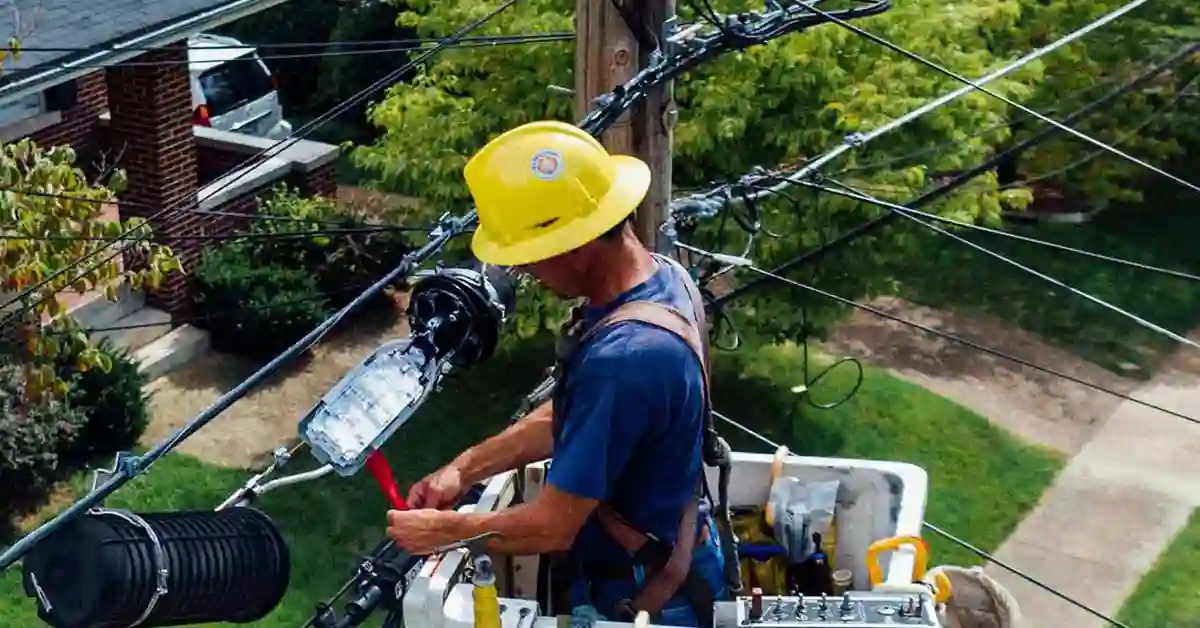
Have you ever pondered about how to become an electrician? Maybe you have an underlying interest in the field of electrical work, or perhaps you're driven by the prospect of a rewarding, hands-on career. Regardless of your motivation, the journey to becoming an electrician can be a thrilling expedition, filled with valuable lessons and insights.
This guide serves as your compass, steering you through the stages of education, practical experience, and certification, each of which are crucial steppingstones in your path to this electrifying career.
The Demand for Electricians
It's no secret that in our increasingly digital world, the dependency on electricity has soared. With it, the demand for electricians has skyrocketed. They form the lifeblood of our modern societies, ensuring electrical power flow to our homes, offices, hospitals, and factories. According to the U.S. Bureau of Labor Statistics, the employment of electricians is expected to grow 10 percent from 2018 to 2028, faster than the average for all occupations. With this growth trend, they continue to play an instrumental role across all sectors, facilitating the safe and efficient functioning of electrical systems.
Try our Electrician Software to help manage your business
Overview of How to Become an Electrician
Basic Requirements
The journey to becoming an electrician is paved with a series of requirements. The first step starts with the basic educational qualification of a high school diploma or its equivalent. A strong foundation in subjects like mathematics and physics is critical since these concepts underpin much electrical theory. In addition, physical fitness is a must-have given the physically demanding nature of the job, which often involves lifting heavy equipment, climbing ladders, and working in tight spaces.
Educational Pathway
Following high school, an aspiring electrician typically will become engaged in post-secondary education. Often by enrolling in a program at a vocational or technical school. These specialized programs furnish students with an in-depth understanding of electrical concepts, code requirements, and safety procedures, all the while equipping them with the necessary skills to handle electrical work. These programs usually combine theoretical classroom-based instruction with hands-on practical training.
Licensing and Certification
After completing their education and gaining real-world experience via an apprenticeship, prospective electricians need to pursue licensing. Most states in the U.S. require electricians be licensed. This license showcases your proficiency in electrical work, thereby enhancing your credibility and employability. On top of that, earning additional certifications can further cement your standing as a highly skilled professional in this field.

Detailed Steps to Becoming an Electrician
Acquiring the Necessary Education
High School Diploma
The first step to become an electrician is to obtain a high school diploma or General Educational Development (GED) certificate. This will provide you with a solid foundation in mathematics, science, and other subjects that will be useful as you begin your electrical training.
Vocational or Technical School
Following high school, enrolling in a vocational or technical school is a common next step. These schools offer programs designed to prepare students for a career as an electrician and can typically be completed in one to two years. The curriculum often comprises subjects like electrical circuitry, blueprint reading, safety practices, and electrical code requirements, and blends classroom learning with practical, hands-on training.
Gaining Practical Experience
Apprenticeship Programs
After acquiring the necessary theoretical knowledge, it's time to get your hands dirty. Apprenticeship programs offer a unique opportunity to gain real-world experience while learning on the job. Typically lasting four to five years, apprentices work under the supervision of a licensed electrician, applying classroom knowledge to practical scenarios, honing their skills, and gaining a better understanding of the field. This combination of on-the-job training and classroom instruction proves instrumental in molding a proficient electrician.
Getting Licensed
To work as an electrician, you will need to obtain a license from the state in which you wish to work. Once you've amassed substantial practical experience through your apprenticeship and satisfied all other state prerequisites, you're eligible to become a licensed electrician. Licensing is a crucial step as it solidifies your status as a qualified professional. The specifics of licensing vary by state. They typically require passing a comprehensive examination that tests your understanding of electrical theory, local electric and building codes, and best practices in electrical installation and repair.
Continuing Education and Advancement
Electrical work, like many other technical fields, is dynamic, with changes and advancements happening regularly. Therefore, even after obtaining your license, the learning doesn't stop. Many states require a licensed electrician to engage in continuing education to keep abreast of changes in electrical codes, safety protocols, and advancements in technology. Additional certifications in areas like renewable energy or home automation could open the door to new opportunities and help you stand out in the job market.
Gain Work Experience
Once you have completed your apprenticeship and obtained your license, it is important to gain as much work experience as possible. This will help you to develop your skills, refine your techniques, and become more familiar with different types of electrical systems and equipment. Work experience will also help you to establish a reputation as a knowledgeable and reliable electrician, even learning the best electrician van setup techniques. This can lead to new job opportunities and increased earning potential.
Just starting? Try our free Estimate Template PDF
Conclusion
Becoming an electrician is a challenging and rewarding career that offers the opportunity to make a significant contribution to society. By obtaining a high school diploma or GED, completing an apprenticeship program, obtaining a license, and gaining work experience, you can develop the skills and knowledge necessary to succeed as an electrician. The skills and qualities required for success in this field include attention to detail, physical dexterity, problem-solving skills, physical stamina, strong communication skills, and safety consciousness. If you are asking yourself, how do I become an electrician, we encourage you to pursue your dreams and become an electrician today!
Learn how much electricians can make in a year in addition to the best tools for an electrician
FAQs
1. How long does it take to become an electrician?
The process usually takes between 4 to 5 years, which includes 240 hours of education and 48 months of on-the-job apprenticeship and training.
2. Can electricians specialize in certain areas?
Yes, electricians can specialize in areas such as residential, commercial, and industrial electrical systems, or focus on areas like renewable energy or home automation.
3. Do electricians need to be physically fit?
Yes, the job can be physically demanding. Electricians often need to move around all day, climb ladders, and sometimes work in cramped conditions.
4. Are there continuing education requirements for electricians?
Yes, many states require electricians to complete continuing education to maintain their licenses. These courses can cover new technologies, safety practices, and changes to the electrical code.
